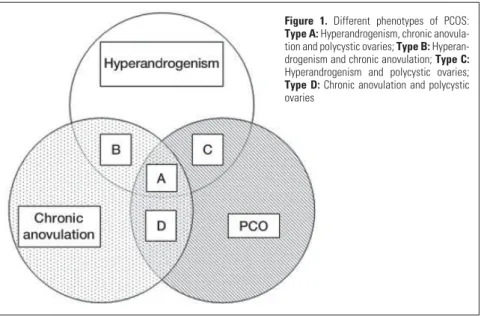Polycystic Ovary Syndrome An Endocrine and Metabolic Disorder Throughout Life
Texto
Imagem

Documentos relacionados
Background: Patients with metabolic syndrome (MetS) are at high coronary risk and beta-cell dysfunction or insulin resistance might predict an additional risk for early
The relationship between leptin, adiponectin, ghrelin, homocysteine, insulin resistance and other biochemical factors in women with polycystic ovary syndrome (PCOS) is
Summary of the findings: The metabolic syndrome is characterized by insulin resistance and the presence of risk factors for cardiovascular diseases and diabetes mellitus type
Metabolic syndrome (MS) is a complex disorder represented by a cluster of cardiovascular risk factors related to central fat distribution and insulin resistance (IR), and
As there is controversy about the prevalence of hypertension in patients with polycystic ovary syndrome (PCOS) and, up to the present moment, no studies have evaluated the impact
tic ovary syndrome have an increased risk of the metabolic syndrome associated with increasing androgen levels indepen- dent of obesity and insulin
Because insulin resistance, characteristic of the metabolic syndrome and type 2 diabetes, results in lower urine pH through impaired kidney ammoniagenesis and because a low urine pH
Polycystic ovary syndrome (PCOS) typically manifests during the reproductive period, and no information is available on the prevalence of pelvic floor dysfunction (and